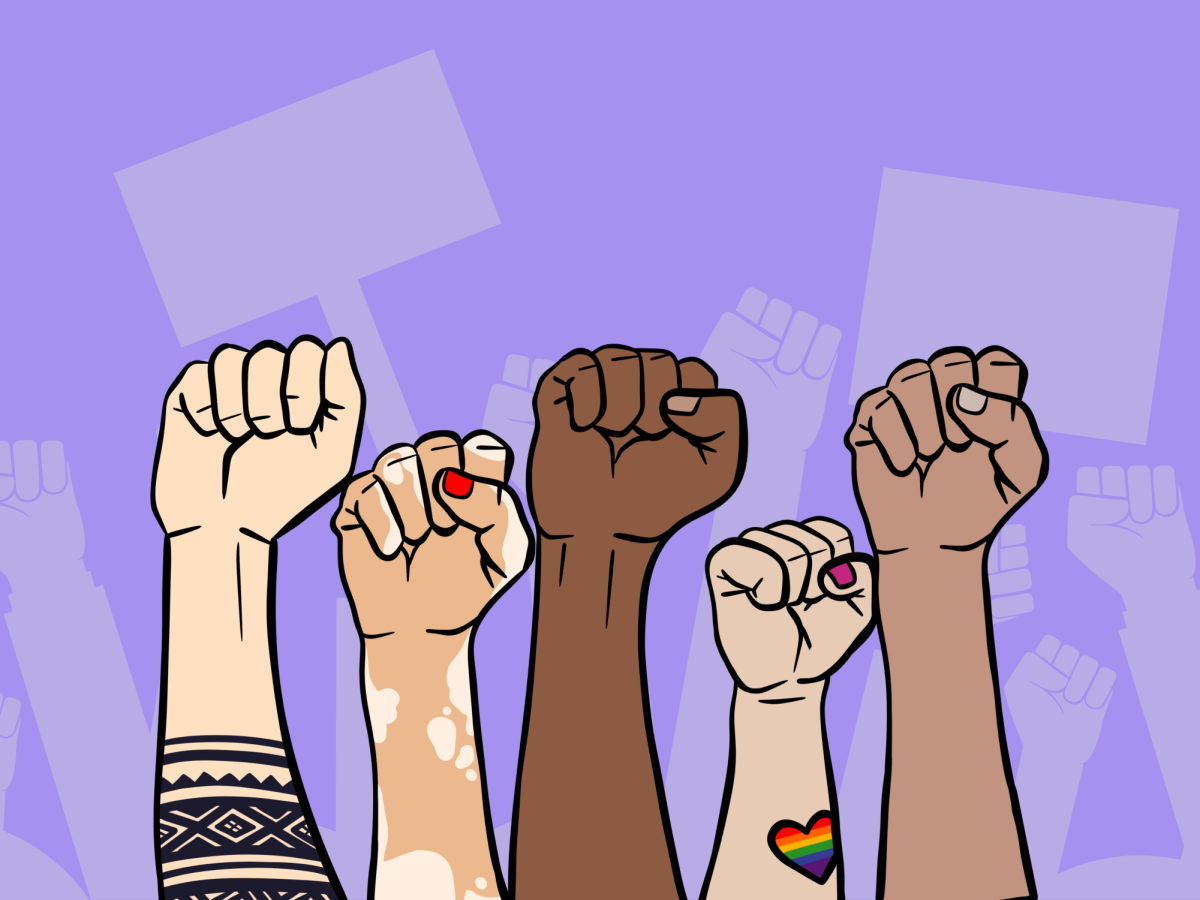During this past election season, a word many people have probably heard thrown around is “woke.” Personally, I hear the word a lot in the context of conservative media and “ending wokeness.” But I believe that people who try to make the idea of being woke a bad thing are blissfully ignorant.
What does it mean to be woke? The word originated from African American communities, with one of the earliest uses believed to be around the 1930s in a protest song advising Black listeners to “stay woke” after nine Black men were wrongly accused of raping two white women in Alabama. The general consensus is that to be woke is to be aware of social and political issues that negatively impact Black and other marginalized communities. To be woke is to be conscious of the social justice issues around you and the history of how discriminatory systems were instilled into society. The term picked up steam in the early 2010s, used within the Black Lives Matter movement to combat police violence.
Over the past decade, the word has been stripped of its original meaning as many conservative talking heads demonize it as some type of propaganda. Florida Governor Ron DeSantis introduced his “Stop WOKE” bill alongside his “Don’t Say Gay” bill in 2022 in an attempt to censor dialogues about race, gender, sexual orientation and discrimination within schools. This censoring included banning books that discussed certain concepts related to race, gender, racism and privilege.
“Woke” is used as a political dog whistle among the right, and they see “wokeness” as some sort of attack, specifically on children. However, when used in its original and correct sense, “wokeness” promotes education, protects marginalized groups and combats discrimination not only in America but worldwide. Those who aim to “end wokeness” are aiming to limit access to knowledge of racist and discriminatory practices that negatively impact people of color and members of the LGBTQIA+ community. Before using a word, make sure you know what it means. Stay woke.
















































